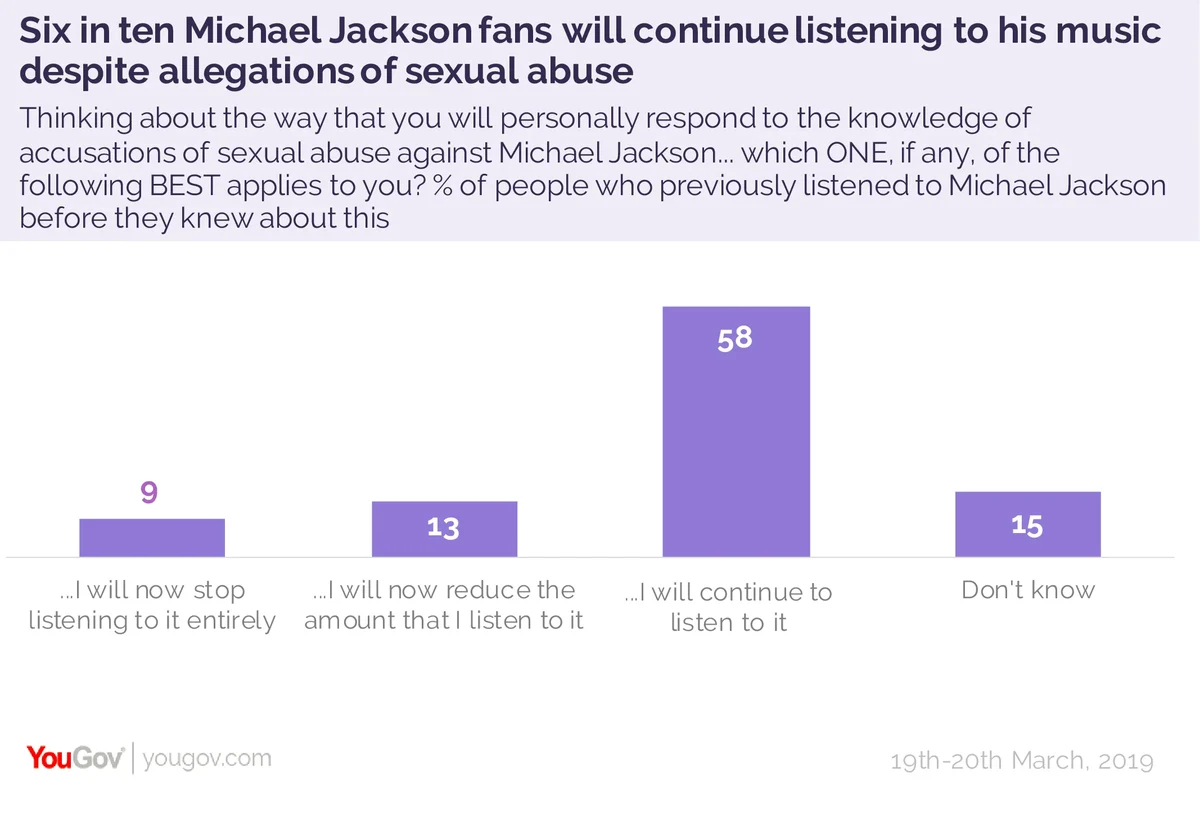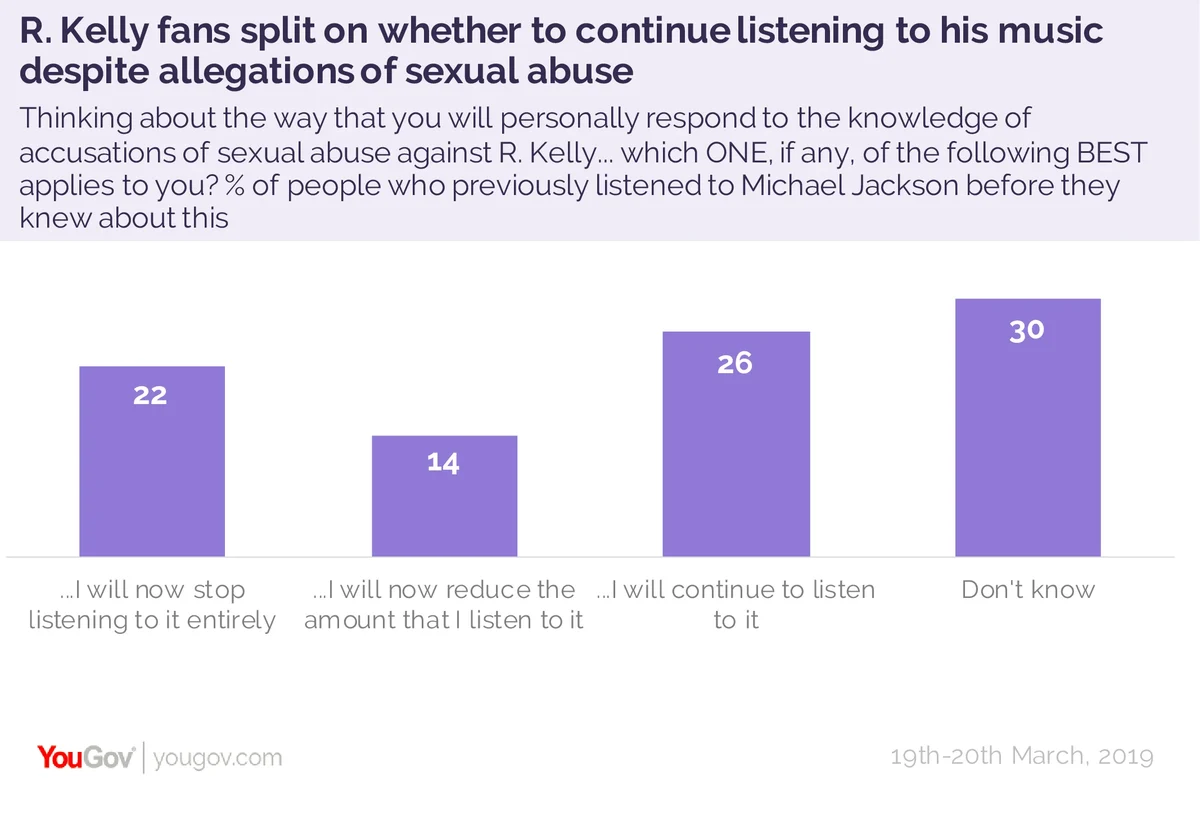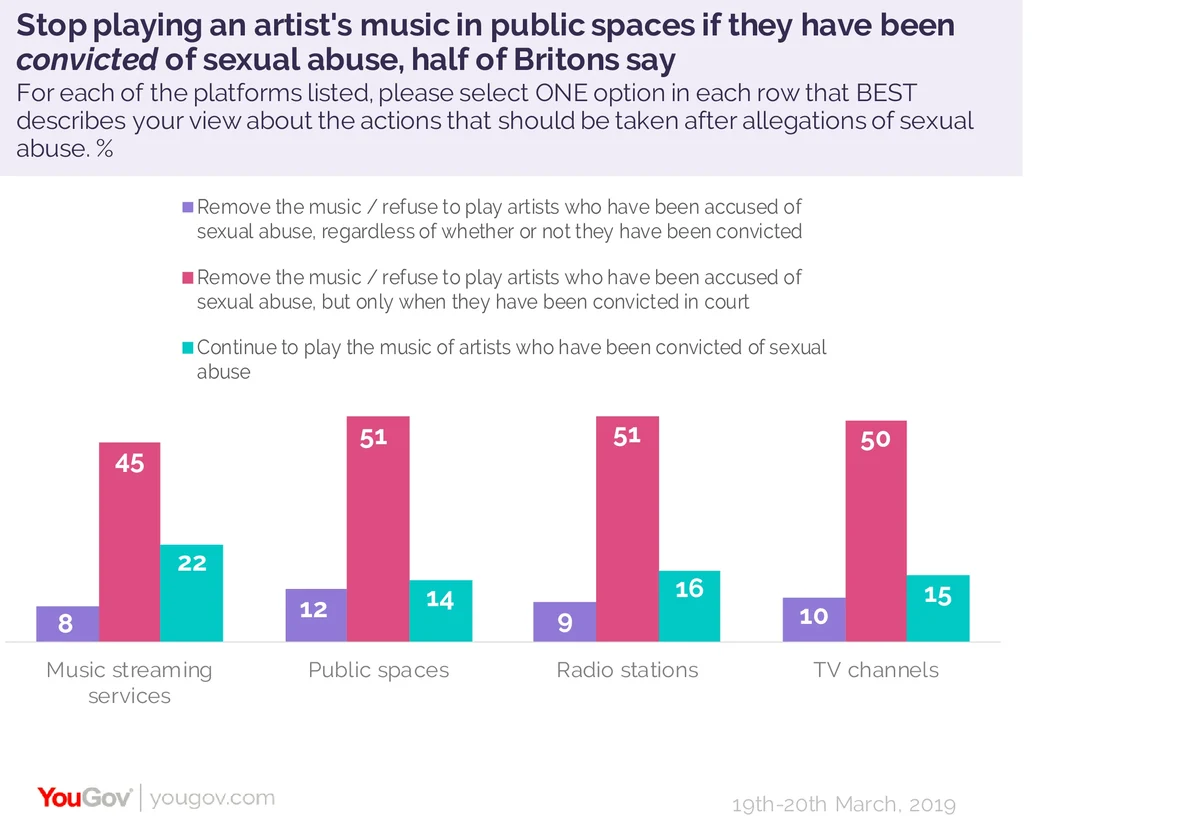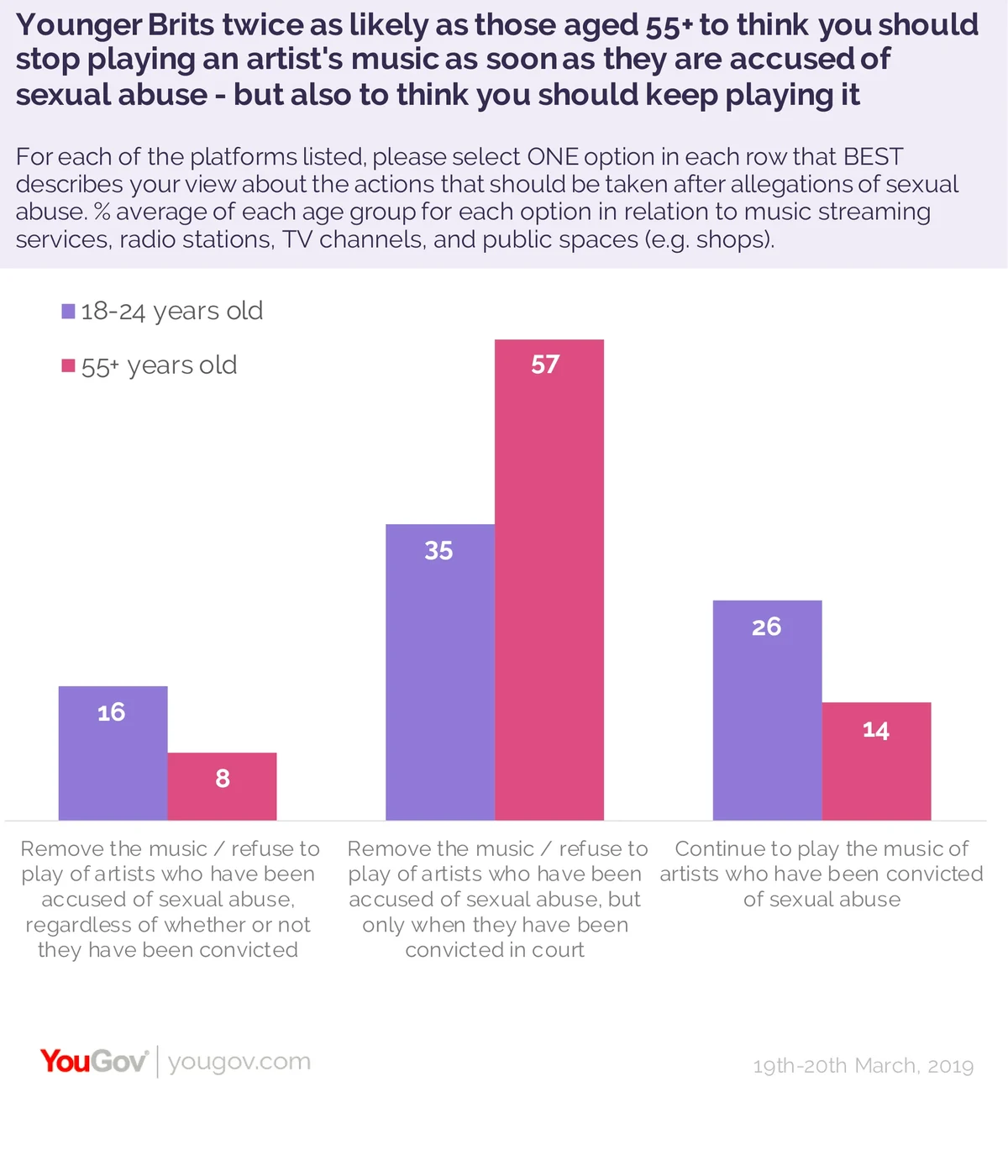YouGov asks whether fans will continue listening to the music of Michael Jackson and R. Kelly after high-profile sexual abuse allegations - and whether they think radio, TV and streaming services should ban them
Documentaries alleging sexual abuse of minors by two of the biggest names in pop music were released in the UK within weeks of each other: Leaving Neverland about Michael Jackson and Surviving R. Kelly.
The films sparked countless articles and social media discussions debating not only whether or not the artists are guilty, but whether it’s right to listen to the music of an alleged sexual abuser.
YouGov asked Britons if they had seen the documentaries, whether they knew about the allegations and whether they would now listen to the artists’ music.
Was Michael Jackson guilty?
Half of Britons (51%) think Michael Jackson was guilty of the allegations made towards him.
One in four Britons (25%) have seen at least part of ‘Leaving Neverland’. Of those who have seen the whole documentary, three quarters (73%) think he was guilty of sexual abuse. Even those who’ve seen only part of the documentary are significantly more likely to think he was guilty than the average (64% versus 51%).
Just 6% were not aware of the accusations at all, and one in nine Britons (11%) think Michael Jackson was innocent.
Will you keep listening?
Among those who previously listened to Michael Jackson’s music, six in ten (58%) fans will continue to do so.
Just one in eleven (9%) will stop listening entirely. This stance is slightly more popular among younger people (11% of 18 to 24 year olds) than older groups (7% of those aged 55 and older). One in seven (13%) say they will reduce the amount they listen to.

Those who have watched the ‘Leaving Neverland’ documentary are twice as likely as people who have not to say they will stop listening to his music (18% versus 8%) - even though those who have not seen it say they are aware of the accusations against Michael Jackson from other sources.
Will you keep listening to R. Kelly?
R. Kelly’s is a significantly less prominent case in the UK, exemplified by the fact that a quarter of Britons (28%) report being unaware of the accusations against him before taking our survey. He’s currently charged with ten counts of sexual abuse in the US, all of which he denies.
Still, one in eighteen (7%) Britons have seen at least some of the six-part documentary, ‘Surviving R. Kelly’.
R. Kelly fans are much less likely than Michael Jackson fans to say they will continue to listen to his music despite allegations. Just one in four (26%) say they will. One in five (22%) say they will stop listening entirely, and one in seven (14%) will listen to it less often.

Stop playing an artist’s music once they’ve been convicted, half of Britons say
But what about those playing music in public spaces? Should radio show hosts, TV broadcasters, shopping malls and music streaming services continue to play the music, even if people among their audiences might not be comfortable with hearing it?
Our survey also revealed that the most popular approach on this issue among Britons is to stop playing an artist’s music at the point of conviction – not at the point of accusation. Around half of Britons say every platform should stop playing an artist’s music if they’ve been convicted of abuse (45% streaming, 51% public spaces, 51% radio, 50% TV).
Just one in twelve Britons (8%) think music streaming services should stop playing music by artists accused of sexual abuse, regardless of whether they’ve been convicted. One in eight (12%) think public spaces should do so, falling to one in eleven (9%) for radio stations and one in ten (10%) for TV channels.

18 to 24 year olds are twice as likely as those aged 55 and above to think all of the platforms asked about should stop playing music by an artist as soon as they have been accused. (14% versus 7% for music streaming services, 9% versus 19% for public spaces, 7% versus 15% for radio stations, 7% versus 16% for TV channels).
However, they are also twice as likely to think these platforms should continue playing the music of artists who have been convicted – and less likely to sit in the middle (i.e. say music should be removed in the event of conviction).

Women are consistently more likely to think we should stop playing the music of artists who have been convicted of sexual abuse allegations – be it on music streaming services (50% women, 40% men), in public spaces (55% versus 46%), on radio stations (56% versus 46%), or on TV channels (55% versus 46%). In the same vein, they are consistently less likely to think we should keep playing music by an artist who has been convicted.
Just one in seven Britons think it is acceptable for TV channels (15%), public spaces (14%) or radio stations (16%) to continue playing music by artists accused of sexual abuse. Slightly more think music streaming services should continue playing said artists’ music (22%).
Photo: Getty
See full results here









